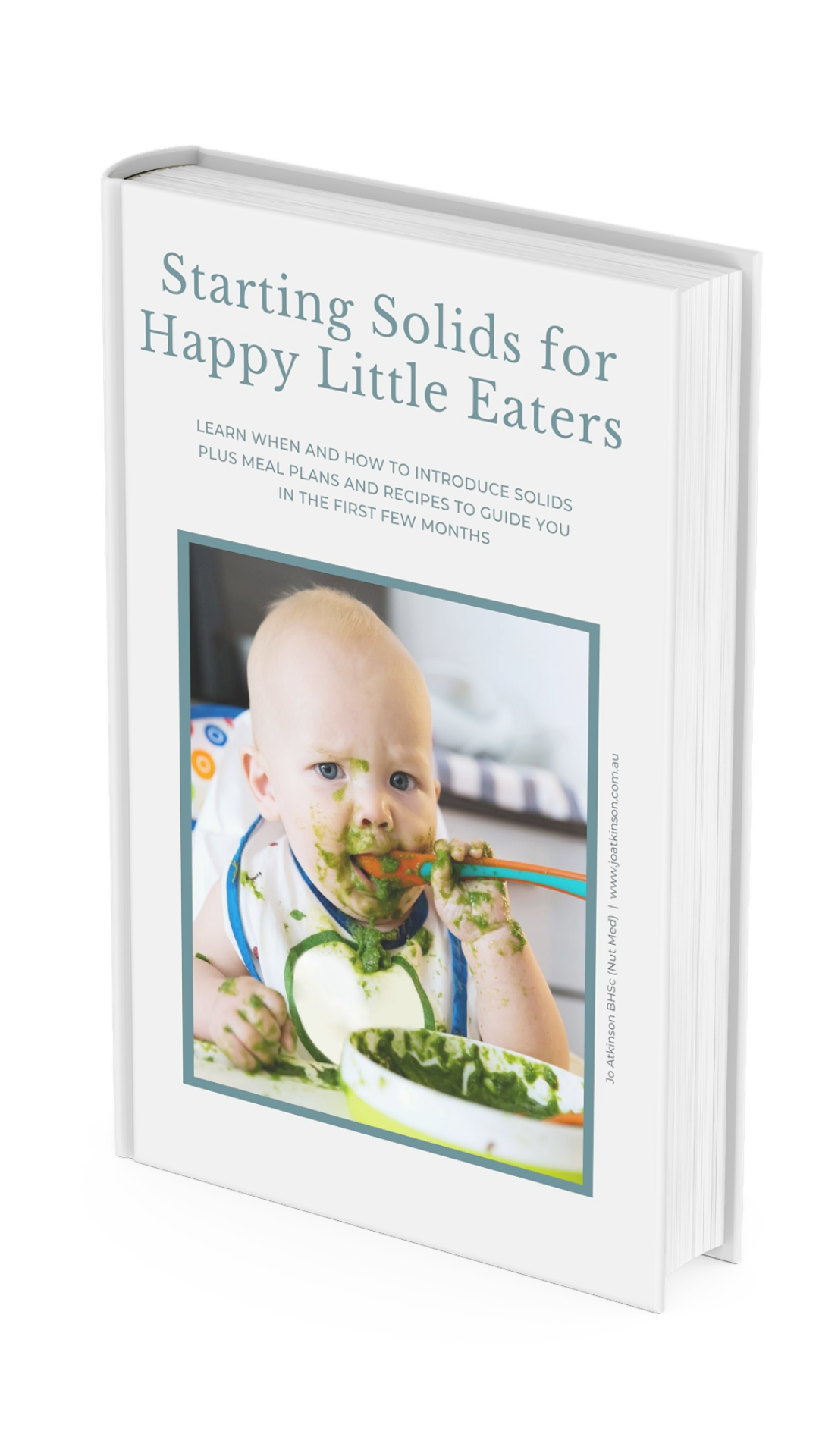Is Gagging Normal for Babies?
Gagging can be quite scary for parents to witness because it can be so dramatic, but it's actually a very common occurrence and is part of a baby's learning process.
As opposed to choking which is completely silent and happens when something is completely blocking the airway, gagging can be very noisy and quite dramatic.
Babies might gag and cough often when starting solids because the gag reflex in younger babies mouths is quite far forward and moves back as they age. This serves as a safety mechanism against choking while they're learning to eat, and helps them eject anything quickly if they need to - much like the tongue thrust reflex.
A baby’s gag reflex begins moving further back at around 6-8 months, and should be completely back to where an adults would be by around 12 months.
So when you see a six month old gagging, you are really seeing a reflex action that protects them, rather than a choking risk.
Starting Solids for Happy Little Eaters - $12.95
Learn how to recognise the signs your baby is ready to start solids, how much to feed them and whether baby-led weaning or purees are right for your baby. PLUS I have included easy meal plans and recipes to guide you in the first few months.
So what should you do to avoid choking risks...which is something you should be concerned about...
Your baby should always be sitting upright and have complete control of all food that goes in and out of their mouth.
If your baby is gagging - it’s always best to let your baby’s natural gag reflex push food out. The same applies if they eat a piece of food that you feel is too big for them, or if they put too much food in their mouth at once.
It’s advised not to try to take any food out of your baby's mouth when they're gagging.
This is because if you put a finger in their mouth to try and help them get the food out, you could potentially push the food further back past their gag reflex, increasing the potential risk of choking.
I always recommend that new parents do a child first aid course. Not only will this help you to feel more confident with introducing solids to your baby, but it will teach you the essential skills you need to provide emergency first aid for common child related injuries and illnesses.
One of the key principles in my program for introducing solids is to focus on building a positive relationship between your baby and nutritious whole foods. That includes making the experience of eating relaxed and positive.
Whether you decide to introduce finger foods that may cause gagging right from the start, or after a couple of months of purees, knowing and understanding the components of safe eating is crucial so that you’re able to stay calm and confident while starting solids with your baby - helping them to build that positive relationship.

